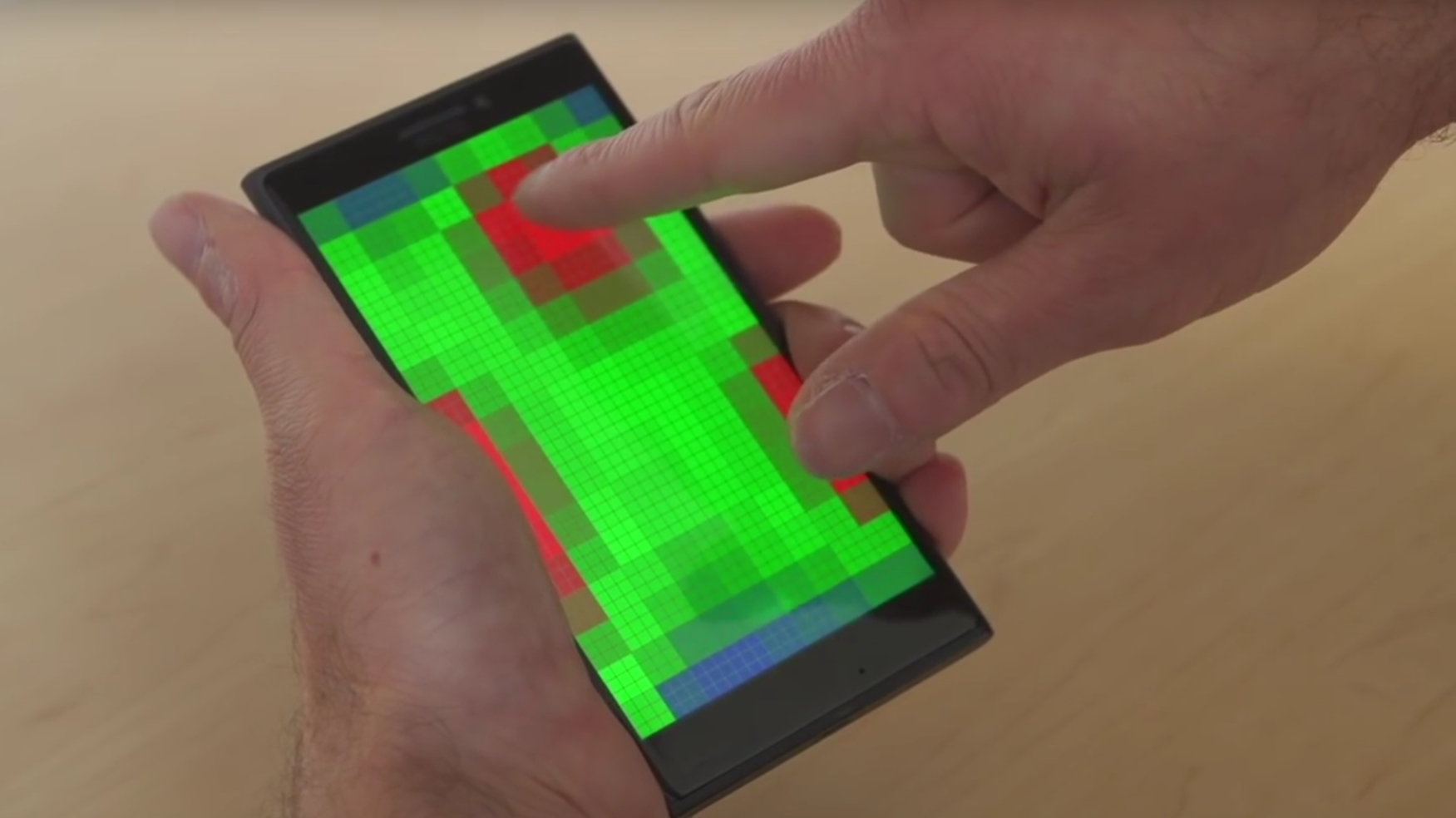Microsoft's take on 3D Touch hovers above Apple's own

Add this to the list of cool smartphone experiments, like Word Flow, that Microsoft's working on: tech that can detect your fingers before they touch a screen. Pre-touch sensing for mobile interaction, as the Microsoft Research branch calls it, is like 3D Touch, but the potential here is exponentially greater.
As seen in the video below, the tech can detect the presence of your digits hovering above the screen and, with that information, show the appropriate visual interface based on the phone's orientation. It's even intelligent enough to factor in your palm grip around the phone's edges, and whether you're holding the phone with one hand or not.
While not exactly comparable to 3D Touch, which Apple introduced as a headline feature in the iPhone 6S and iPhone 6S Plus, Microsoft's take on alternative touch methods is similar in that it aims to expands the possibilities of how users can interact with devices.
But one peep at the video shows you that there appears to be more going on with the hardware. Microsoft explains that the tech basically turns the phone's screen into a giant capacitive button that can detect the proximity between your fingers and the screen.
Aside from being a really neat tech demo, the applications for such a thing range from games, video playback, and as The Verge points out, Microsoft had also toyed with allowing users to hover over Live Tiles to peek at additional info without touching the screen.
It's always interesting to see what Microsoft is working on the smartphone department. Even though its Windows 10 Mobile doesn't have a very strong hold against the well-established Apple and Android ecosystem, this pre-touch sensing demonstration shows that Microsoft remains a major player.
Now, when will we see it in one of its phones? It's hard to say. It missed the golden opportunity with the Microsoft Lumia 950 and Lumia 950 XL flagship phones, but maybe it will show up inside of the rumored Surface Phone next year.
Sign up for breaking news, reviews, opinion, top tech deals, and more.
- Source: The Next Web

Cameron is a writer at The Verge, focused on reviews, deals coverage, and news. He wrote for magazines and websites such as The Verge, TechRadar, Practical Photoshop, Polygon, Eater and Al Bawaba.